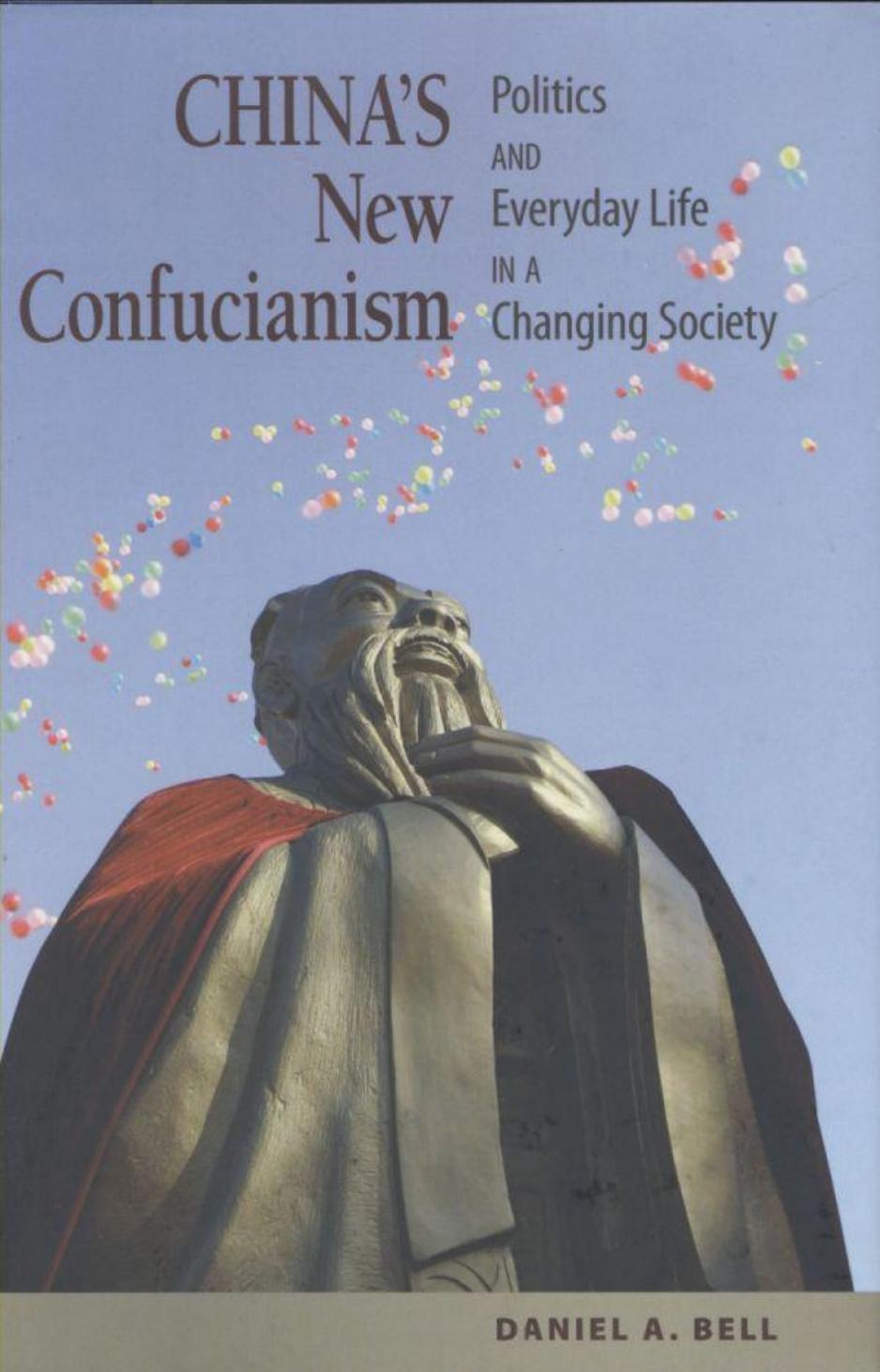China's New Confucianism: Politics and Everyday Life in a Changing Society by Daniel A. Bell

Author:Daniel A. Bell [Bell, Daniel A.]
Language: eng
Format: epub, pdf
Tags: History & Theory, Political Ideologies, Political Science, Asia, History, China, General
ISBN: 9780691136905
Google: IO9fkUCNPzMC
Publisher: Princeton University Press
Published: 2008-01-15T07:07:07+00:00
The Methods of Education in the Humanities
Professor Hu: Well, I agree that learning isnât just about reading books. But I wonder about your emphasis on music. If we want to promote critical thinking, the Socratic method is more appropriate for higher education in the humanities. The teacher should ask questions, rather than providing the answers and telling the students what to think. The student will eventually realize his or her errors and be open to new ideas. Thereâs no better way to improve critical thinking and prepare the student for democratic citizenship.
Professor Kong: Iâm not sure if Socrates should be emulated. He neglected his family so that he could pursue the good life, but my view is that the family is an important part of the good life. âFilial and fraternal responsibility is the root of humanity and compassionâ (1.2).
Professor Hu: Whatever. My concern isnât the historical Socrates, itâs the method that bears his name. And if the aim is to promote critical thinking, then we should adopt his method in higher education.
Professor Kong: I worry about the Socratic method. Too often, the student can be subject to ruthless scrutiny. The aggressive questioning techniques often lead to the shaming of students and an adversarial approach between teacher and student. As mentioned, we should try to promote critical thinking in a harmonious context, not critical thinking that undermines affective ties. If Socrates had been more concerned with harmony, he wouldnât have made so many enemies, nor would he have paid with his life to defend his ideals.
Professor Hu: But donât you realize the emphasis on harmony undermines the aim of critical thinking? East Asian students in American universities are often very reluctant to express their own views, not to mention criticizing the views of others. In my case, it took several years of immersion in Western liberal universities before I could shed my cautious ways.
Professor Kong: Iâm not sure if caution is a bad thing. As I see it, âExemplary persons should be slow in speech but quick in actionâ (4.24). Yan Hui, my best student, rarely spoke: âI could speak with Yan Hui for an entire day without his raising an objection, as though he were not very bright. But when I looked into his private conduct after he withdrew, it illustrated perfectly what Iâd been saying. Indeed, there was nothing slow about Yan Hui!â (2.9). Itâs puzzling to me why some teachers seem to emphasize class participation, as though students must be able to immediately grasp and engage with the material being taught. Surely what matters is that the students reflect upon the material and manage to understand it in due course, as well as live their lives in accordance with their new understandings. Why should we encourage students to speak up if they havenât developed good understanding of the material?20
Professor Hu: It seems like youâre encouraging students to be passive recipients of the teacherâs knowledge. They should follow the teachings and never criticize their teachers in class.
Professor Kong: With all due respect, thatâs not my view.
Download
China's New Confucianism: Politics and Everyday Life in a Changing Society by Daniel A. Bell.pdf
This site does not store any files on its server. We only index and link to content provided by other sites. Please contact the content providers to delete copyright contents if any and email us, we'll remove relevant links or contents immediately.
What's Done in Darkness by Kayla Perrin(25489)
Shot Through the Heart: DI Grace Fisher 2 by Isabelle Grey(18208)
Shot Through the Heart by Mercy Celeste(18151)
The Fifty Shades Trilogy & Grey by E L James(17766)
The 3rd Cycle of the Betrayed Series Collection: Extremely Controversial Historical Thrillers (Betrayed Series Boxed set) by McCray Carolyn(13178)
The Subtle Art of Not Giving a F*ck by Mark Manson(12890)
Scorched Earth by Nick Kyme(11821)
Stepbrother Stories 2 - 21 Taboo Story Collection (Brother Sister Stepbrother Stepsister Taboo Pseudo Incest Family Virgin Creampie Pregnant Forced Pregnancy Breeding) by Roxi Harding(11005)
Drei Generationen auf dem Jakobsweg by Stein Pia(10207)
Suna by Ziefle Pia(10176)
Scythe by Neal Shusterman(9249)
International Relations from the Global South; Worlds of Difference; First Edition by Arlene B. Tickner & Karen Smith(8598)
Successful Proposal Strategies for Small Businesses: Using Knowledge Management ot Win Govenment, Private Sector, and International Contracts 3rd Edition by Robert Frey(8404)
This is Going to Hurt by Adam Kay(7676)
Dirty Filthy Fix: A Fixed Trilogy Novella by Laurelin Paige(6444)
He Loves Me...KNOT by RC Boldt(5794)
How to Make Love to a Negro Without Getting Tired by Dany LaFerrière(5366)
Interdimensional Brothel by F4U(5298)
Thankful For Her by Alexa Riley(5148)
